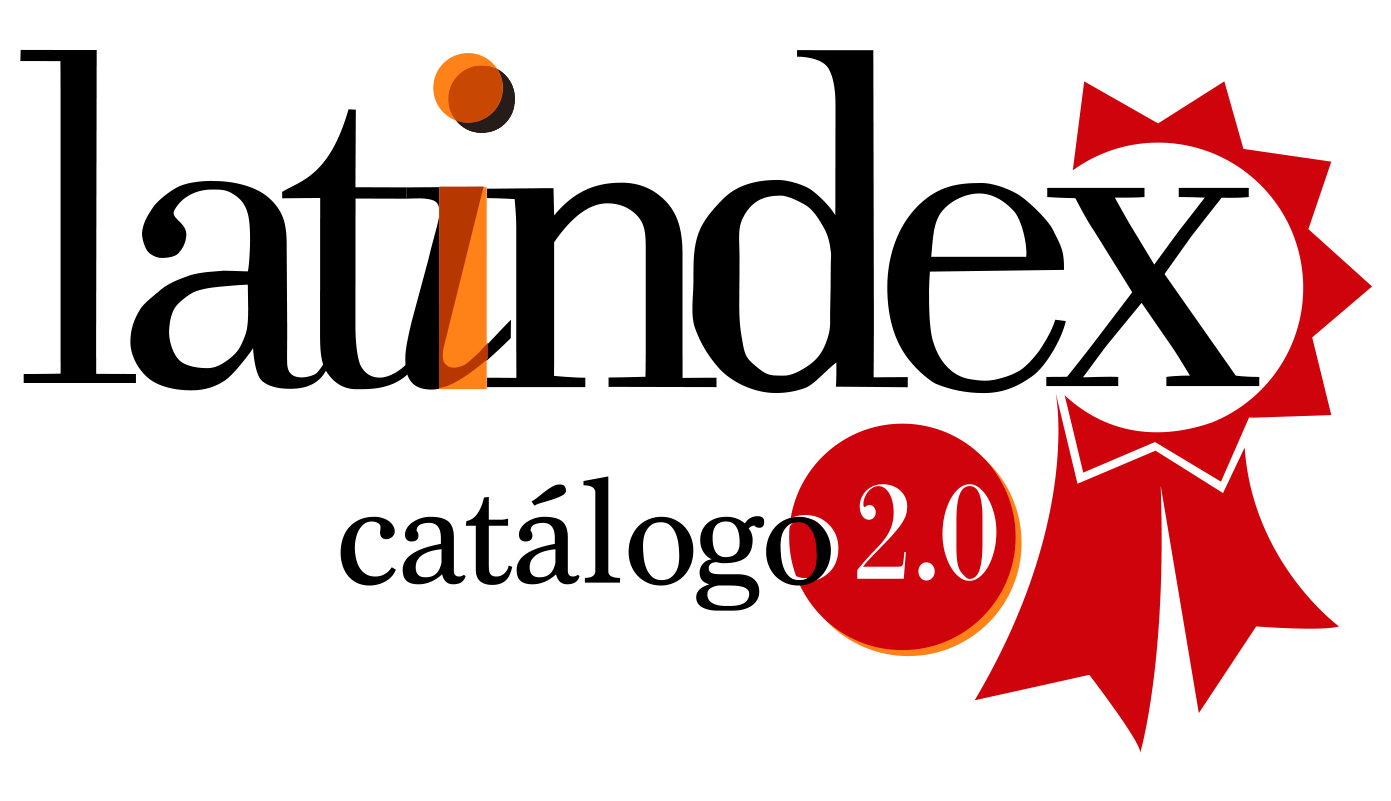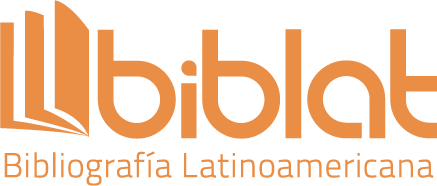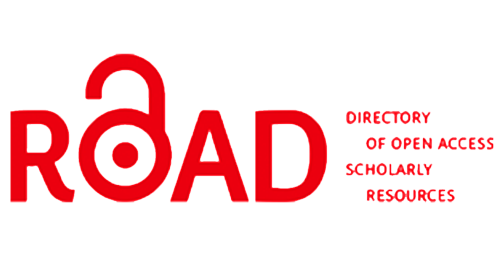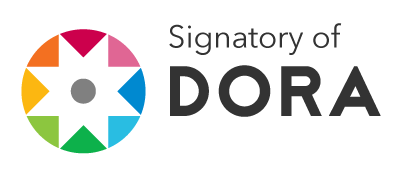Imaginative Education: imagination, creativity and emotion in early education
DOI:
https://doi.org/10.38123/rre.v2i2.183Keywords:
imaginative education, comprehensive communication, early childhood educationAbstract
We live in a changing world, and education should respond to the needs of this constant movement and the reality of the new generations. This research tries to generate a link between Early Education, at transition levels, and Imaginative Education as a methodology that responds to new studies in different areas, including neuroscience. This link integrates emotional brain and language, to promote the field of comprehensive communication, using its cognitive tools of the Imaginative Education for the development of Learning Objectives of the initial levels. It is expected that through the design of an implementation proposal for educational institutions, educators will get to know the tools of Imaginative Education, reflect and put the methodology into practice, in order to reach emotionally to all children, hoping to generate meaningful learning, as well as promoting creativity and imagination.
Downloads
References
Bringas, N. (2013). ¿Cómo el cerebro comprende y genera el lenguaje? En C. Ruiz de Somocurcio (Ed.), Funciones cerebrales que nos hacen diferentes (pp. 2-28). Cerebrum.
Campos, A. (2013). Cómo evolucionó el conocimiento del cerebro y cómo eso impacta en la educación. En C. Ruiz de Somocurcio (Ed.), La arquitectura del cerebro humano (pp. 2-30). Cerebrum.
Cisneros, M. y Silva, O. (2007). Aproximación a las perspectivas teóricas que explican el lenguaje. Universidad Tecnológica de Pereira.
Cisterna, F. (2005). Categorización y triangulación como procesos de validación del conocimiento en investigación cualitativa. Theoria, 14(1), 61-71.
Egan, K. (2018). Mentes educadas: cómo las herramientas cognitivas dan forma a nuestro entendimiento. Ediciones Universidad Finis Terrae.
Egan, K. y Judson, G. C. (2012). Imaginación, herramientas cognitivas y alumnos renuentes. Praxis Educativa, 16(2), 8-18. http://www.redalyc.org/articulo.oa?id=153124711001
Egan, K. y Judson, G. (2018).Educación imaginativa: herramientas cognitivas para el aula. Narcea.
Eisner, E. (2004). El arte y la creación de la mente: el papel de las artes visuales en la transformación de la conciencia. Paidós.
García, C., García, E. y Zamorano, M. A. (2010). Expresión y comunicación grado superior. McGraw Hill.
Grimaldo, A., Judson, G., Boullosa, P. y Acuña S. (2017). Educación imaginativa: una aproximación a Kieran Egan. Morata.
Hernández, R., Fernández, C. y Baptista, M. (2014). Metodología de la investigación. McGraw Hill Education.
Lucci, M. A. (2006). La propuesta de Vygotsky: la psicología socio-histórica. Profesorado, Revista de Currículum y Formación del Profesorado, 10(2). https://revistaseug.ugr.es/index.php/profesorado/article/view/19845
Marchesi, A. (2009). Preámbulo. En J. Palacios y E. Castañeda (Eds.), La primera infancia (0 - 6 años) y su futuro (pp. 7-10). OEA y Fundación Santillana.
Martínez, M. (1998). La investigación cualitativa etnográfica en educación. Manual teórico-práctico. Trillas.
Ministerio de Educación. (2018). Bases Curriculares para la Educación Parvularia. https://hdl.handle.net/20.500.12365/432
Mora, F. (2013). Neuroeducación: solo se puede aprender aquello que se ama. Alianza.
Ortiz, T. (2009). Neurociencia y educación. Alianza.
Palacios, J. y Castañeda, E. (2009). Principios y retos de la educación inicial que queremos para la generación de los bicentenarios. En J. Palacios y E. Castañeda (Eds.), La primera infancia (0 - 6 años) y su futuro (pp. 115-124). OEA y Fundación Santillana.
Pinnel, G. (2018). Oral Language as a Foundation for Literacy Learning. En P. L. Sharer (Ed.), Responsive Literacy: A Comprehensive Framework (pp. 32-43). Scholastic.
Real Academia Española. (2022). Expresar. Diccionario de la lengua española [versión 23.3 en línea]. https://dle.rae.es/expresar
Robinson, K. (2015). Escuelas creativas: la revolución que está transformando la educación. Penguin Random House.
UNICEF (1989). Convención sobre los Derechos del Niño.
Vasilachis, I. (2006). Estrategias de investigación cualitativa. Gedisa.
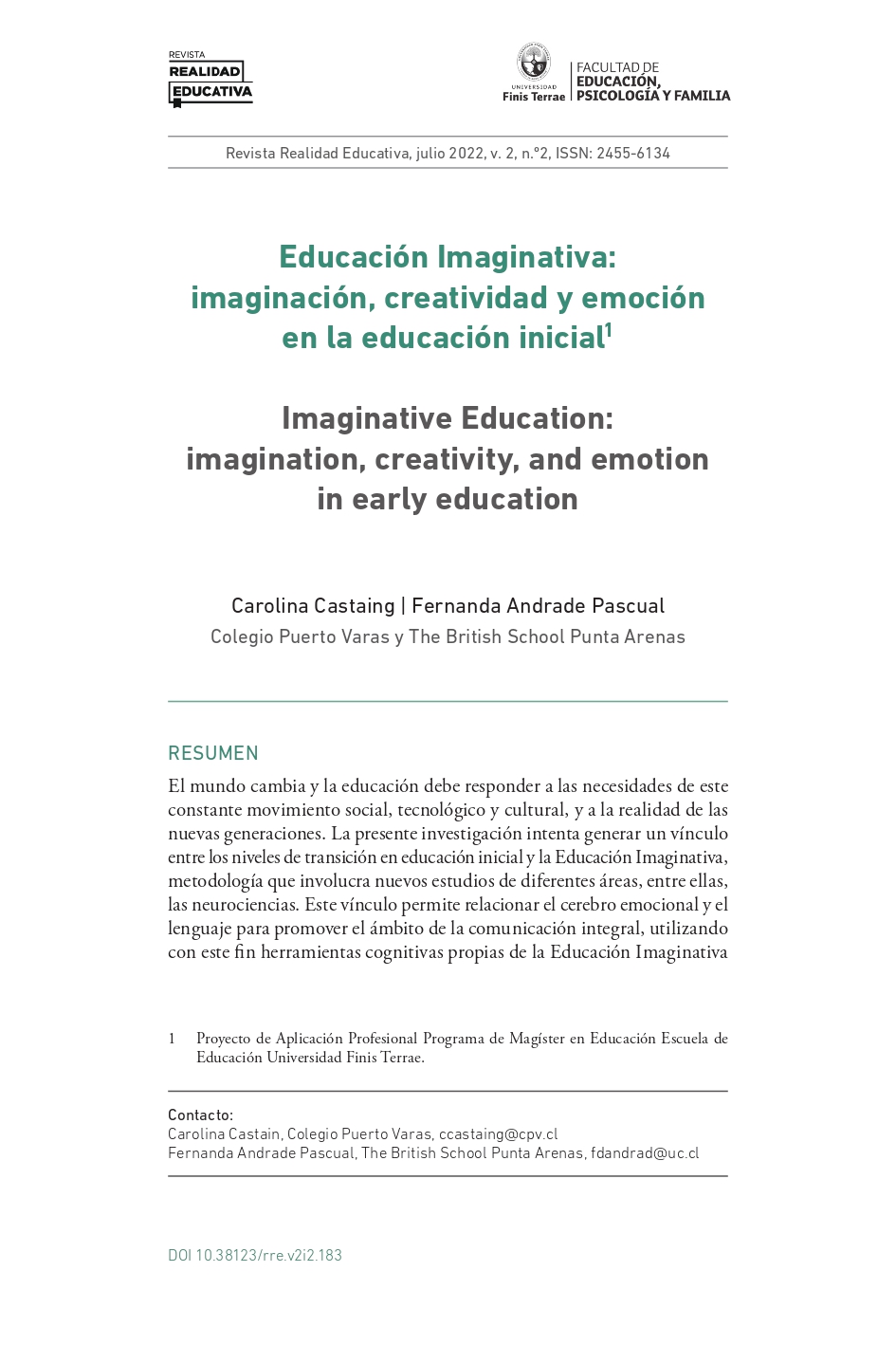
Published
How to Cite
Issue
Section
License
Copyright (c) 2022 Carolina Castaing; Fernanda Andrade Pascual

This work is licensed under a Creative Commons Attribution-NonCommercial-NoDerivatives 4.0 International License.
Los contenidos de esta revista se distribuyen bajo una licencia Atribución/Reconocimiento-NoComercial-SinDerivados 4.0 Internacional.


